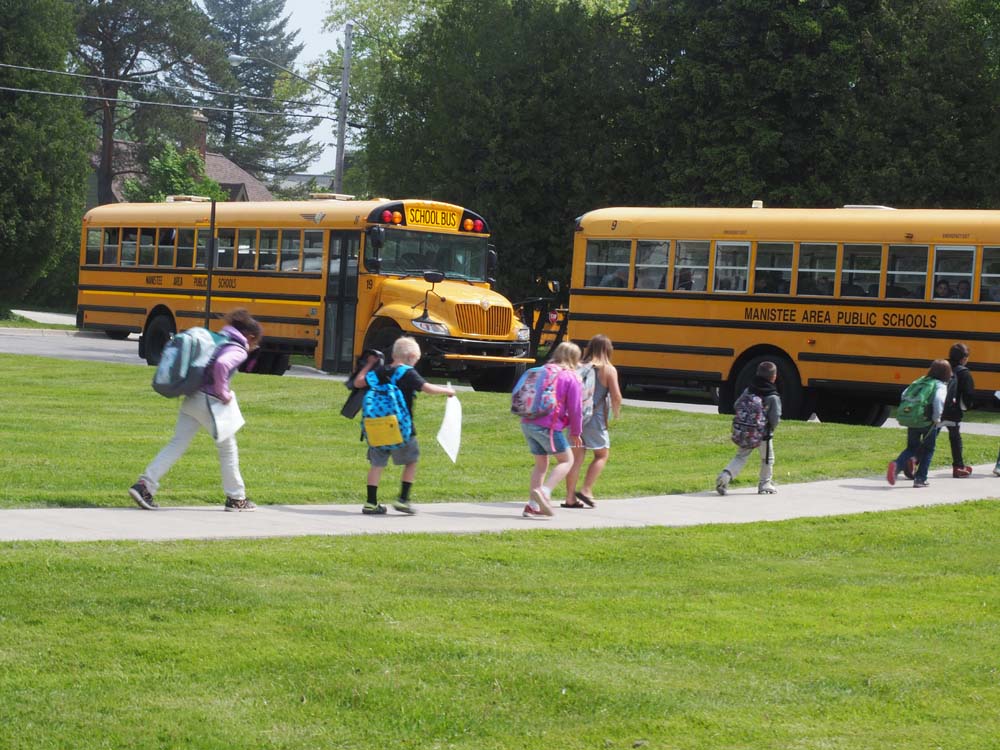MAPS Safety Initiatives
At MAPS we focus on providing a safe and welcoming place to learn where all students are supported to overcome challenges in their lives and develop the skills they will need to be successful in and out of the classroom.
Working with students, families, staff, and community we have created the following collection of resources to provide support for all students.

Student Safety at MAPS
It is district policy to provide a safe and nurturing educational environment for every student. We work tirelessly to protect our students from aggressive behaviors regardless of the subject matter or motivation.
Our Faculty and Administration are committed to the protection of our MAPS students. Through ongoing training we work to:
- Ensure appropriate response to both the victim and the aggressor in any situation
- Educate our students regarding appropriate behavior and the impact of aggressive behavior
- Understand the ways in which we can proactively protect our students.
Bullying and other aggressive behavior toward any student is strictly prohibited. Every student is encouraged, and every staff member is required, to report any situation that they believe to be aggressive behavior. You can help too, remember: “see something, say something”.
Community Collaboration
Our Faculty and Administration work with the City of Manistee Police Department, the Manistee County Sheriff’s Department, and the Michigan State Police for ongoing safety training and support. Consistent protocols and safety procedures are developed through this work that ensure an efficient response for the safety of every student.
Officers are assigned to each school building in our district to provide a regular law enforcement presence, while allowing these agencies to better understand the needs of our community.
Additionally, our efforts are coordinated with our Behavioral Health Team, Centra Wellness, and the Manistee County Juvenile Court to provide more resources to students and families. Working together with our MAPS families to provide support both at school and at home, we can help our students to communicate their feelings and manage challenges.
FREQUENTLY ASKED QUESTIONS
How does the Student Support Team help our students?
Our Behavior Health Team helps our students with:
- Identifying skills gaps and individual plans for academic success
- Sharing methods for developing emotional regulation
- Working with families to provide guidance and tools for support
What is the bullying policy?
Bullying or other aggressive behavior toward a student is strictly prohibited. This prohibition includes abuse in any form:
- Written
- Physical
- Verbal
- Cyber
- Psychological
Including hazing, gestures, comments, threats, or actions to a student, which cause or threaten to cause bodily harm, reasonable fear for personal safety or personal degradation.
View the full policy at: MMHS Handbook
Where does the bullying policy apply?
This policy applies to:
- All “at school” activities in the District
- Activities on school property
- While riding in a school vehicle
- Activities occurring off school property if the student or employee is at any school-sponsored, school-approved or school-related activity or function.
- Misconduct occurring outside of school may also be disciplined if it interferes with the school environment.
What is considered bullying?
Bullying is considered targeted, intentional, and repetitive; it is a pattern of behaviors that harms a student.
- Verbal Bullying– Teasing, name-calling, inappropriate sexual comments, and taunting.
- Social Bullying – Deliberately hurting another’s reputation: spreading rumors, repeatedly excluding someone, and telling other students not to be friends with someone.
- Physical Bullying – Physical harm such as: hitting, pushing, tripping, stealing possessions, and sexual assault.
- Cyber-Bullying – Use of the internet (social media) to target victims during or after school.
What is not considered bullying?
Bullying is NOT…
Behaviors that are not deliberate or repetitive are not considered bullying. Conflict and drama between students will not always be defined as bullying.
- Exclusion – Excluding someone in an activity, unless repeated and deliberate.
- Disliking someone – Students may communicate their dislikes. However, starting rumors or verbal abuse is not acceptable.
- Accidental physical harm – Only considered bullying when deliberate.
- Being “bossy” – Learning to lead skillfully is a lifelong process, and most students are still learning how this works.
- Telling a joke about someone – While this is not encouraged behavior, it is not considered bullying unless there are repeated instances.
- Arguments – Arguments and disagreements often happen, only bullying if it escalates to aggressive behavior.
What is the Family Educational Rights Privacy Act (FERPA)?
FERPA is a federal act protecting the disclosure of personally identifiable information from student records to outside entities.
What can the district share about incidents involving students?
- The district is required to protect the identity of each student involved, the details of the incident, and disciplinary actions that may occur.
- Should an incident occur involving your student, that we’re aware of, you can expect correspondence from the school limited to the details that involve your student.
What happens when an incident is reported?
- Investigation of details begins
- Speak with all individuals involved
- Sort out the details from all perspectives
- Communicate with families about details of incident
- Appropriate follow up action occurs
What is being done when a bullying incident is reported?
- We take all factors into consideration when investigating incidents involving our students and applying disciplinary action
- Even though you may not have the details of actions taken, please know that we are following the parameters necessary to properly address behavioral issues
- What may appear as an inconsistency in action taken, may be based upon circumstances that cannot be shared
What do families need to understand about the incident reporting process?
COMMUNICATION CHALLENGES
Please understand….
- Because of student access to cell phones and social media, often incident details are shared faster than we can collect information and reach out to families
- When we call you, we want to be sure we have the details in order first
- If we ask you questions, it is only for the purpose of reaching a deeper understanding, and is never to discredit you or your student
- It is always our goal to work with you in reaching resolution, but please understand that certain details regarding the incident must be protected
How can families help with the Student Support process?
- Monitor your student’s personal device use at home for appropriate use; we can only monitor what happens during school hours and on school devices
- Recognize the warning signs that your student is involved in bullying or being bullied
- Talk to your student about positive behaviors & actions
- Have patience with our process as we work toward resolution
- Stay in communication with us; reach out for support with any concerning behaviors
Why would an aggressive student remain in the classroom?
Aggressive students are often kept in the classroom to foster a safe and inclusive learning environment for all students, allowing for individualized support and interventions to address the root causes of the aggression.
Why aggressive students may be kept in the classroom:
- Inclusion and Least Restrictive Environment:
The principle of “least restrictive environment” in education means that students with disabilities (including those with behavioral challenges) should be educated in the general education setting to the maximum extent possible, with appropriate supports and accommodations.
- Individualized Support:
Keeping students in the classroom allows for the development of individualized plans and interventions tailored to their specific needs, rather than isolating them from their peers.
- Addressing Root Causes:
Aggressive behavior can stem from various factors, including learning disabilities, mental health issues, trauma, or environmental stressors. Keeping students in the classroom allows educators to observe their behavior, identify potential triggers, and implement strategies to address the underlying issues.
- Promoting Positive Relationships:
A safe and inclusive classroom can foster positive relationships between students and teachers, which can help students learn and develop social-emotional skills.
- Preventing Escalation:
Early intervention and positive behavioral supports can prevent aggressive behavior from escalating and potentially leading to suspensions or expulsions.
- Restorative Practices:
Schools are increasingly using restorative practices, which focus on repairing harm and building relationships, rather than punishment. Keeping students in the classroom allows for the implementation of these practices.
- Safety and Supervision:
While it’s important to address aggressive behavior, it’s also crucial to ensure the safety and well-being of all students. Keeping students in the classroom allows for better supervision and intervention when necessary.
- Teacher Training and Support:
For the past several years, MAPS has sought alternative funding for increased focus on behavioral health supports for our students and families and training opportunities for staff. The Crisis Prevention Institute equips individuals with skills to prevent and respond to crisis situations effectively, focusing on nonviolent intervention techniques and de-escalation strategies.
Key Skills of CPI training:
- Identifying and understanding challenging behaviors
- Using verbal de-escalation techniques
- Implementing non-restrictive interventions
- Understanding trauma-informed approaches
- Using safe, physical interventions as a last resort
MAPS has 2 staff members certified as CPI trainers and has trained over 70 staff members since 2023. The training opportunities are ongoing and are offered to all staff members.
Why are family members not allowed in the buildings at pick up and drop off times?
MAPS restricts building access during drop-off and pick-up times for safety and security reasons. The policy is aimed at maintaining a safe environment at high traffic times, allowing staff to focus on safely transporting students instead of keeping track of who has entered the building.
Unfortunately, we live in a time when school buildings have been targeted in shooting incidents and other incomprehensible crimes. Although family members do not generally create a safety concern, we need to be certain that every person in the building has been identified before entry to ensure safety for all.
Safety
The presence of many parents and families during drop-off and pick-up can create a chaotic environment, potentially leading to accidents or unsafe situations. By limiting access, we can better manage traffic flow, ensure orderly loading and unloading of students, and reduce the risk of accidents.
Security
Strict protocols are in place to verify the identity of those picking up students and ensure that they are authorized to do so. Our school buildings are secured during these times, and access is controlled to prevent unauthorized entry and ensure the safety of students and staff.
SOCIAL-EMOTIONAL LEARNING QUESTIONS
What is social-emotional learning and how does it help?
SOCIAL-EMOTIONAL LEARNING
In our classrooms social-emotional learning is used to help our students learn skills for:
- Building healthy identities
- Managing emotions
- Achieving goals
- Feeling and showing kindness toward others
- Establishing and maintaining supportive relationships
- Making responsible and caring decisions
MORE INFORMATION….
SEL is the process through which students learn skills for identifying and managing their internal thoughts and feelings, establishing and maintaining healthy relationships, and navigating problems and decisions. The SEL skills students are developing fall into the following categories:
• Self-Awareness: Noticing our thoughts, feelings, and urges to act
• Self-Management: Using skills to manage thoughts, feelings, and behaviors in ways that are helpful in the short- and long-term
• Social Awareness: Understanding the perspectives and feelings of others, and responding to them with empathy and respect
• Relationship Skills: Initiating, defining, and maintaining healthy relationships with others
• Responsible Decision-Making: Approaching problems and decisions systematically, using our values and goals as a guide
Why is my student learning SEL in the classroom?
SEL helps students to build skills important in and out the classroom, for things like:
- managing stress
- building relationships
- solving problems
MORE INFORMATION….
The positive impacts of SEL for students are broad and long-lasting! There is a robust amount of research to indicate that students who learn social and emotional skills demonstrate increased academic performance as compared to their peers who do not receive these skills. With SEL, students can better cope with stress, navigate relationships, and solve problems effectively. All students benefit from these skills, which bolster their ability to function most fully in every aspect of their lives.
What is TRAILS SEL for grades 9-12?
TRAILS is the program being taught to teachers to help students build skills in the classroom for managing stress, building relationships, and solving problems.
MORE INFORMATION….
Transforming Research into Action to Improve the Lives of Students (TRAILS) SEL Curriculum, developed by the University of Michigan, is grounded in cognitive behavioral theory (CBT) and mindfulness, two approaches proven to work in promoting mental health in students. CBT states that the way we think impacts how we feel and what we do. Mindfulness is the act of focusing our attention on what we’re experiencing in the present moment. These core skills help students manage stress, establish and maintain healthy relationships, and problem-solve effectively.
What is CSC SEL for grades K-8?
Caring School Community (CSC) is the program our K-8 teachers are learning for using social-emotional skills in the classroom to help our students learn skills for:
- Managing feelings
- Making good and caring choices
- Building trust
- Feeling and showing kindness
- Growing friendships
- Interest in learning and activities
MORE INFORMATION….
Caring School Community is built around the following principles and key features:
- A focus on the whole school community: Community must include everyone: students, parents, school leaders, teachers, custodians, cafeteria staff, yard supervisors, and support staff.
- Relationships matter: Relationships underpin teaching, learning, and prosocial development. Building relationships and fostering a sense of community are hallmarks of the program.
- Comprehensive leadership guidance: The program includes everything a leader needs for a successful implementation, including step-by-step guidance and resources to help plan for, launch, and support implementation.
- A unique stance on discipline: No more gold stars. A focus on community, not compliance. Caring School Community builds on the powerful insight that when students have strong relationships within their community, they are more likely to acquire self-discipline and feel a sense of responsibility to themselves and to others.
- A year’s worth of teacher-friendly, easy-to-implement, grade-specific instruction: A full 30 weeks of daily, grade-specific lessons across K–8 that only require 30 minutes a day, with a comprehensive scope and sequence to build relationships, social skills, and competencies intentionally over time.
- Creating calm, orderly learning environments: Through consistent use of effective classroom management practices and structures that build relationships, the program helps teachers create calm, safe classrooms that are more conducive to learning.
- Addressing inequitable discipline practices: Our approach to discipline assumes that all children want to and can behave well at school and are capable of learning and changing their behavior. The program encourages teachers to treat students with respect at all times and to treat misbehavior as mistakes akin to those students make with academic work, not as signs of moral or character flaws. In response to misbehavior, Caring School Discipline guides teachers to focus on what students can do to restore relationships and repair any damage they have caused as well as what they might do differently in the future, rather than making students feel guilty or ashamed.
- Robust content for middle school: Grades 6–8 are not an afterthought. The program provides comprehensive Advisory Period lessons as well as guidance for integrating SEL across all subject areas. Lessons address developmentally appropriate and urgent topics for middle school.
A large body of research confirms that building a safe and caring school community and attending to social and emotional learning are essential to students’ overall success.
Is my student’s teacher doing therapy?
Classroom instructors are not doing therapy. They are teaching students skills to learn incredibly important social and emotional skills to help them succeed in school and at home.
How will my family’s values be incorporated into SEL?
We recognize that each student has their own set of values, beliefs, and ideas. The SEL program approaches this with and understanding of these differences.
MORE INFORMATION…
Every student comes to school with unique values, families, interests, identities, and perspectives. SEL in the classroom acknowledges that these factors influence how students think about their own experiences, interact with others, and deal with problems. Integrating SEL into the classroom honors the uniqueness of and connections between each student and provides consistent skills and strategies for success individually, in relationships, and in other areas of their lives.
How can I stay informed on what SEL skills my student is practicing?
Be sure to connect with your child’s teacher about the specific SEL skills being practiced in the classroom. Additionally, your child’s teacher may send home informative letters as your student moves from topic-to-topic as it relates to SEL.
How can I reinforce SEL skills at home?
Your student’s teacher can share information about what is being taught and how you can help to support these skills at home.
MORE INFORMATION…
Practicing SEL skills outside of the classroom is incredibly important. Caregivers and families play a crucial role in instilling and reinforcing SEL skills at home. Regular practice of these skills helps to strengthen them in students as they see adults modeling and using the skills alongside them. Your child’s teacher can point you to suggestions and strategies for practicing and reinforcing these skills at home.
The Caring School Community website offers ideas for activities at home to help build these skills: https://sites.google.com/pps.net/socialemotionallearninginpps/family-student-resources?authuser=0
Safety & Support Resources
OK2SAY
MMHS is an OK2SAY school. This is an anonymous way for students to let school and law officials know about an unsafe situation in our school. From smoking, vaping, bullying, to weapons – OK2SAY is available statewide for public and private schools in Michigan; anybody can submit a tip. Specially trained technicians receive the tips and filter the information to the appropriate agency to provide a timely and effective response. While we encourage students to come directly to an adult in our building for a situation that needs immediate attention, OK2SAY is a way to get help for students in need.
Sexual Harassment and Sexual Assault Information
Dear MAPS families,
We want to bring to your attention a significant initiative focused on promoting student safety and awareness.
The Michigan Department of Education (MDE) is launching the dissemination of a Sexual Harassment and Sexual Assault Information Guide, which is required for all educational agencies serving students in grades 6-12. This initiative is mandated by law ( MCL 380.1508) and aims to provide essential educational materials to our students. This Sexual Harassment and Sexual Assault Information Guide (link below) was developed by MDE in partnership with
- Michigan Domestic and Sexual Violence Prevention
- Treatment Board and Michigan Coalition to End Domestic& Sexual Violence.
The guide includes information such as:
- What constitutes sexual harassment and sexual assault
- An explanation that these acts are never the victim’s fault
- Resources available for individuals who have experienced sexual harassment or sexual assault, including Title IX information and contact details for organizations that provide support
It is important that your child understands this information and we encourage you to discuss these topics with them beforehand. We believe that open communication between parents and children is crucial in fostering a safe and supportive environment.
Thank you for your support in ensuring our students are informed and protected.
Sincerely,
Morgan Nowicki, MMHS Principal
LINK to Sexual Harassment and Sexual Assault Information Guide
Cyber Tip Line
The National Center for Missing & Exploited Children’s CyberTipline offers the public and online electronic service providers an easy way to quickly report suspected incidents of sexual exploitation of children online.
CentraWellness
Centra Wellness Network provides wellness-oriented services and support for individuals with mental illness and/or intellectual/developmental disabilities, and for children with emotional disturbances. Our purpose is to help qualified individuals of all ages in their pursuit of happiness by removing any barriers towards recovery and full community inclusion in order to achieve good mental health and to fully participate in community life, utilizing all its resources in line with their individual needs, wants, and desires. No one will be denied access to services due to inability to pay; we offer a discounted/sliding fee schedule.
Centra Wellness offers 24 hour support through their crisis hotline at 877-398-2013.
Michigan Internet Crimes Against Children Task Force
In September 1998, the U.S. Department of Justice began a national Internet Crimes Against Children (ICAC) Task Force program to counter the emerging threat of offenders using the Internet or other online technology to sexually exploit children. The Michigan ICAC Task Force is part of a national network of 61 coordinated task forces representing over 4,500 agencies.
The Michigan ICAC Task Force is comprised of enlisted members of law enforcement and civilians from local, state, and federal agencies. These agencies are continually engaged in proactive and reactive investigations and prosecutions of persons involved in child abuse and exploitation involving the internet. Learn more about the Task Force at: https://www.michiganicac.com/about-us
Manistee Child Advocacy Center Resources
Please click the links below for resources and information for protecting our children:
Connect with Manistee Child Advocacy Center:
Phone: 231-398-2202
Email: manisteecac@gmail.com
Facebook: https://www.facebook.com/manisteecac/
Support Hotlines
LOCAL SUPPORT
CENTRA Wellness Network
www.centrawellness.org
24-Hour Crisis Hotline 1-877-398-2013
Walk-in crisis intervention services – 2198 US-31, Manistee, MI 49660
NATIONAL SUPPORT
NATIONAL SUICIDE PREVENTION HOTLINE
www.suicidepreventionlifeline.org
1-800-273-8255
1-630-482-9696
CRISIS TEXT LINE
TEXT HOME TO 741741
NATIONAL ASSOCIATION OF ANOREXIA NERVOSA AND ASSOCIATED DISORDERS
http://www.anad.org
630-577-1330
NATIONAL DOMESTIC VIOLENCE HOTLINE
www.thehotline.org
800-799-7233
800-787-3224
NATIONAL RUNAWAY SAFELINE
www.1800runaway.org
1- 800-789-2929
NATIONAL SEXUAL ASSAULT HOTLINE
www.rainn.org
1- 800-656-4673
SUBSTANCE ABUSE and MENTAL HEALTH SERVICE AGENCY
https://www.samhsa.gov
1-800-622-4357
TEEN DATING VIOLENCE
www.loveisrespect.org
1-866-331-9474
TRANS LIFELINE
www.translifeline.org
1-877-565-8860
TREVOR PROJECT (LGBTQ+ SUPPORT CENTER)
www.thetrevorproject.org
TEXT START TO 678678
1-866-488-7386
MAPS Student Safety Advisory Committee
In 2018 & 2019 a Student Safety Advisory Committee (SSAC) served as an advisory committee to our Board of Education formed of parents, students, board members, administration, faculty, a Safe-Net representative, and local law enforcement. This committee met on a monthly basis for over a year to discuss objectives for improving student safety in our district. Through their work they helped improve communication, created training opportunities for staff and community members, and the identified resources and initiatives for improved safety throughout the district.
Communications Matrix
In order to establish a standardized expectation for communication, the MAPS Administrative team has worked in conjunction with the volunteers of the Student Safety Advisory Committee to develop a Communication Matrix. This matrix provides an outline of communication expectations with regard to safety related events throughout the district. The Communications Matrix is linked below for your review.


